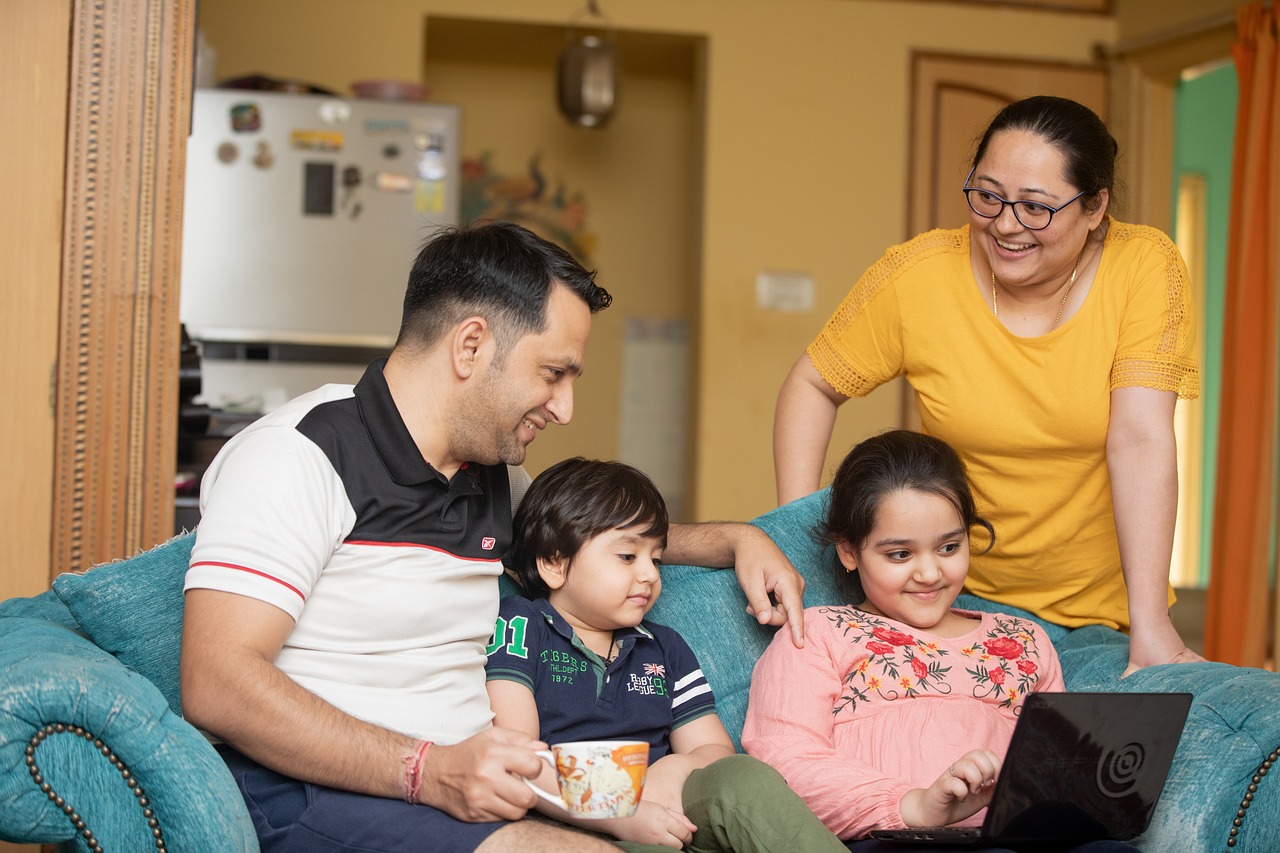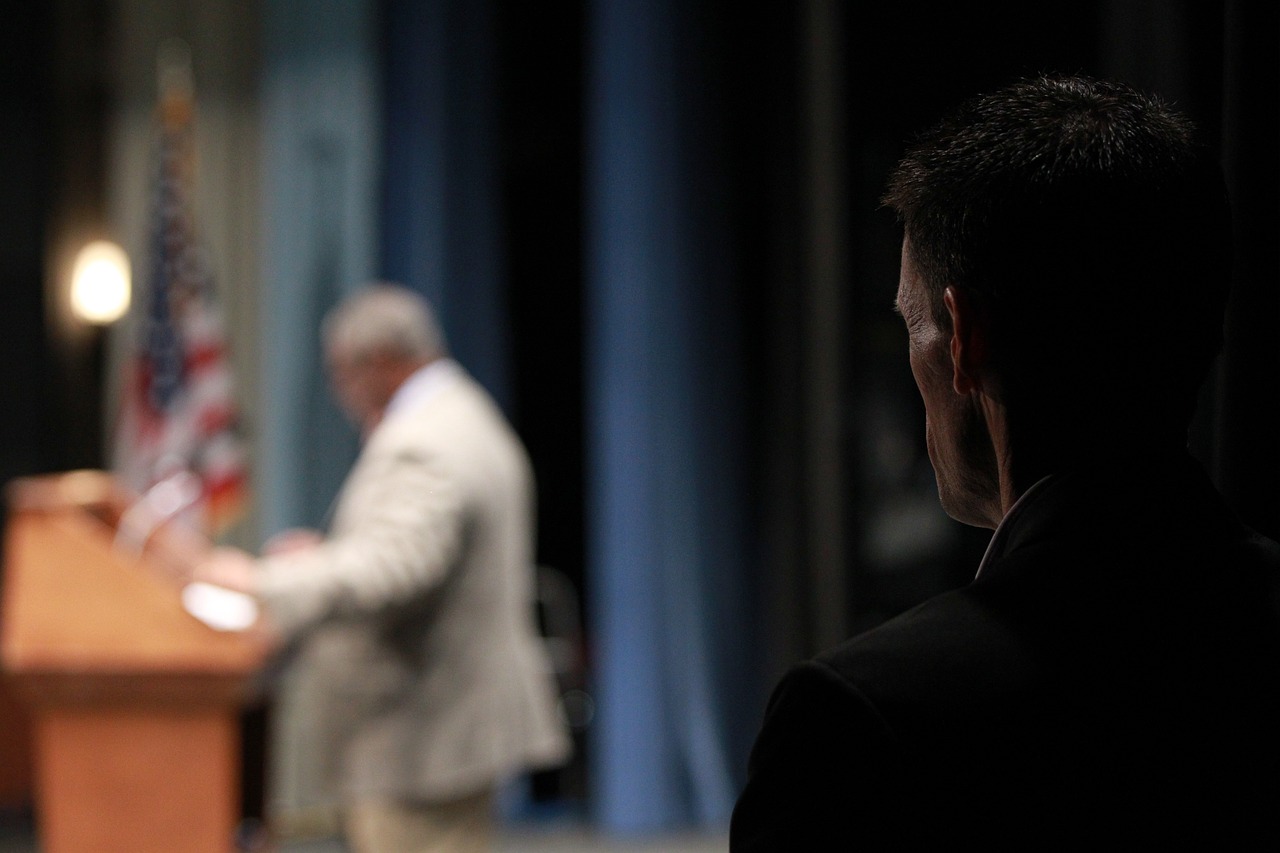Safety when meeting strangers from the internet
In today's digital age, the internet serves as a vast playground where friendships can blossom, ideas can ignite, and connections can flourish. However, with great opportunity comes great responsibility, especially when it involves meeting strangers from the online realm. It's thrilling to think about the possibilities of connecting with someone who shares your interests, but it's crucial to approach these interactions with a healthy dose of caution. After all, how well do you really know the person behind the screen? This article discusses essential tips and precautions to ensure your safety while interacting with individuals met online, highlighting the importance of awareness and informed decision-making.
When you venture into the world of online interactions, it's vital to recognize that not everyone has good intentions. The internet, while a wonderful tool for connection, can also harbor a variety of risks. From scams that prey on your trust to catfishing schemes designed to deceive, the dangers are real and ever-present. Imagine walking into a crowded room full of strangers; some may be friendly, while others could pose a threat. The same principle applies online. By exploring the various dangers associated with meeting strangers online, including scams, catfishing, and potential threats to personal safety, you can better understand the importance of vigilance and protect yourself from falling victim to these hazards.
As you navigate the waters of online communication, being able to identify warning signs can be your lifeline. Recognizing red flags in online interactions is crucial for preventing dangerous situations. For instance, if someone seems too eager to share personal details or rushes to meet in person, it might be worth hitting the brakes. Here are some common red flags to watch for:
- Inconsistent Information: When someone provides conflicting details about themselves, it may indicate deceit. Learning how to spot inconsistencies can help you assess the trustworthiness of an online acquaintance.
- Unusual Requests: Be cautious of individuals who ask for personal information or financial assistance too soon. Understanding the implications of such requests is crucial for maintaining your safety.
- Excessive Secrecy: If someone is secretive about their identity or avoids sharing information, it may signal that they are not who they claim to be. Recognizing this behavior is vital for your protection.
Trusting your instincts can be a powerful tool in assessing online interactions. If something feels off, don't ignore that feeling; it could be your subconscious trying to protect you.
Once you've established a connection and feel comfortable, you might consider meeting in person. However, it's essential to take specific precautions before diving into that next step. Just like you wouldn't dive into a pool without checking the water first, you shouldn't meet someone without ensuring your safety. Here are some steps to ensure a secure encounter:
Meeting in a well-populated, public area can significantly reduce risks. Think of it as choosing a well-lit street over a dark alley. A cafe, park, or even a mall are great choices where you can maintain a level of safety while getting to know each other better.
Letting a trusted friend know about your plans can provide an additional layer of security. Share details about where you're going, who you're meeting, and when you expect to return. It's like having a safety net; if something goes wrong, someone will know to check in on you.
Before meeting someone, it's crucial to set clear boundaries to maintain your comfort and safety. Boundaries are like the walls of your personal fortress; they keep you safe while allowing you to enjoy your interactions. Communicate your limits effectively to your online acquaintance, and don't hesitate to reinforce them if necessary.
Openly discussing what you expect from the meeting can prevent misunderstandings. It's like laying the groundwork for a solid relationship; transparency is key to establishing a safe environment. Make sure both parties are on the same page regarding intentions and comfort levels.
Understanding that it's okay to leave a situation that feels uncomfortable is crucial. Your safety should always come first. If something feels off during your meeting, don't hesitate to excuse yourself. Prioritizing your well-being is not just smart; it's essential.
- What should I do if I feel uncomfortable during a meeting?
Trust your instincts and excuse yourself politely. Always prioritize your safety. - How can I ensure my online conversations are safe?
Be cautious about sharing personal information and always look for red flags in communication. - Is it safe to meet someone from a dating app?
Yes, but take precautions like meeting in public places and informing friends about your plans.

Understanding Online Risks
This article discusses essential tips and precautions to ensure safety while interacting with individuals met online, highlighting the importance of awareness and informed decision-making.
In today's digital age, the internet is a vast ocean of opportunities, connections, and, unfortunately, risks. When you engage with strangers online, it's crucial to understand the potential dangers that lurk behind the screen. One of the most common risks is falling victim to scams. These can range from phishing attempts, where an individual tries to steal your personal information, to more elaborate schemes that can lead to financial loss. It's like walking into a store where everything seems shiny and new, but hidden behind the facade are traps waiting to ensnare the unwary.
Another significant risk is catfishing. This occurs when someone creates a fake identity to lure another person into a relationship. Imagine you think you're chatting with a charming artist, only to discover that they are, in fact, a middle-aged man using someone else's photos. This deception can lead to emotional distress and, in some cases, financial exploitation. The anonymity of the internet can embolden individuals to misrepresent themselves, making it vital for you to remain vigilant.
Moreover, there are potential threats to your personal safety. Meeting someone in person after an online interaction can be like jumping off a diving board into unknown waters. While it might look inviting, you need to be aware of what lies beneath the surface. Cases of harassment, stalking, or even physical harm have been reported, emphasizing the importance of exercising caution and being prepared.
To help navigate these risks, here are a few key points to consider:
- Stay Informed: Knowledge is power. Research and stay updated on common online scams and tactics.
- Practice Vigilance: Always be on the lookout for suspicious behavior or inconsistencies in what someone tells you.
- Prioritize Your Safety: If something feels off, trust your instincts and take a step back.
By understanding these risks and being aware of the potential dangers, you can better protect yourself while engaging with new people online. Remember, the internet is a tool for connection, but it also requires a healthy dose of caution.
Identifying warning signs in online interactions can prevent dangerous situations. This section covers common red flags to watch for when communicating with strangers on the internet.
When someone provides conflicting details about themselves, it may indicate deceit. Learning how to spot inconsistencies can help you assess the trustworthiness of an online acquaintance.
Be cautious of individuals who ask for personal information or financial assistance too soon. Understanding the implications of such requests is crucial for maintaining your safety.
If someone is secretive about their identity or avoids sharing information, it may signal that they are not who they claim to be. Recognizing this behavior is vital for your protection.
Listening to your gut feelings can be a powerful tool in assessing online interactions. This section emphasizes the importance of intuition when meeting strangers online.
Before meeting someone in person, it's essential to take specific precautions. This section outlines steps to ensure a safe and secure encounter with an online stranger.
Meeting in a well-populated, public area can significantly reduce risks. This part discusses the importance of location and its impact on safety during face-to-face meetings.
Letting a trusted friend know about your plans can provide an additional layer of security. This section highlights the importance of sharing details about your meeting with someone close.
Setting clear boundaries before meeting someone can help maintain your comfort and safety. This section discusses how to communicate your limits effectively to an online acquaintance.
Openly discussing what you expect from the meeting can prevent misunderstandings. This part emphasizes the importance of transparency in establishing a safe environment.
Understanding that it's okay to leave a situation that feels uncomfortable is crucial. This section reinforces the importance of prioritizing your safety above all else.
Q: How can I tell if someone online is genuine?
A: Look for consistency in their stories, verify their identity through social media, and trust your instincts. If something seems off, it’s worth investigating further.
Q: What should I do if I feel unsafe during an online conversation?
A: Trust your feelings. If you feel uncomfortable, it’s okay to end the conversation or block the person. Your safety is the priority.
Q: Are there any apps or tools to help ensure safety when meeting someone from the internet?
A: Yes, there are several apps designed to enhance safety, such as location-sharing apps and emergency contact features. Always keep your phone charged and accessible.

Recognizing Red Flags
When navigating the vast and often unpredictable world of online interactions, being able to recognize red flags is your best defense. Just like a seasoned sailor learns to read the winds and waves, you too must learn to identify the signs that someone may not have your best interests at heart. It's crucial to stay alert and aware, as the digital realm can sometimes be a breeding ground for deception and danger.
One of the most telling signs of potential trouble is inconsistent information. If someone you're chatting with provides conflicting details about their life, such as their age, job, or even where they live, it could indicate that they're not being truthful. For instance, if they tell you they're a software engineer one day and a barista the next, it raises a big red flag. Trust is built on consistency, and when that foundation is shaky, it’s time to reconsider your connection.
Another major warning sign to watch for is unusual requests. If your online acquaintance starts asking for personal information—like your home address, phone number, or even financial assistance—too soon, it’s a clear indication that something isn’t right. Remember, a genuine relationship takes time to build, and anyone pushing for personal details early on is likely trying to exploit your trust. Always ask yourself: Why do they need this information, and what could they do with it?
Additionally, be wary of excessive secrecy. If someone is evasive about their identity or avoids giving straightforward answers to your questions, it could mean they’re hiding something. For example, if you ask them about their job and they divert the conversation or provide vague responses, it’s a sign that you should tread carefully. Transparency is key in any relationship, and if they’re not willing to share basic information, it’s time to reconsider whether this connection is worth pursuing.
Trusting your instincts is another critical element in recognizing red flags. Your gut feelings can often sense danger before your mind can articulate it. Have you ever met someone online and felt a sense of discomfort or unease? That feeling is your internal alarm system going off. Don’t ignore it! If something feels off, it probably is. Always prioritize your safety and well-being over the desire to maintain a conversation or connection.
In summary, being vigilant and recognizing these red flags can save you from potential harm. Keep an eye out for inconsistent information, unusual requests, excessive secrecy, and always trust your instincts. By doing so, you’ll be better equipped to navigate the sometimes treacherous waters of online interactions.
- What should I do if I encounter a red flag? If you notice any red flags, it’s essential to take a step back and reassess the situation. Trust your instincts and consider ending the conversation if you feel uncomfortable.
- How can I protect my personal information online? Always be cautious about sharing personal details. Use privacy settings on social media, and avoid sharing sensitive information until you are sure of someone’s intentions.
- What are some safe practices for online dating? Always meet in public places, inform a friend about your plans, and trust your gut feelings. If something feels off, don’t hesitate to walk away.

Inconsistent Information
When you're chatting with someone online, it can be easy to get swept up in the moment, but paying attention to inconsistencies in the information they share is crucial. If you find yourself receiving conflicting details about their life, job, or even their interests, it's time to hit the brakes and reassess the situation. Think of it like piecing together a jigsaw puzzle; if the pieces don't fit, something is definitely off.
For instance, if your new online friend claims to be a world traveler but struggles to name the countries they've visited, that might raise a red flag. Similarly, if they share their age one day but then contradict themselves the next, it's a clear sign that you should be cautious. Inconsistencies can stem from a variety of reasons, but often they point to a lack of honesty or, worse, someone trying to manipulate you.
So, how can you spot these inconsistencies? Here are a few tips to keep in mind:
- Keep notes: Jot down key details about your conversations. This can help you track any conflicting information.
- Ask follow-up questions: If something seems off, don't hesitate to ask for clarification. A genuine person will be happy to provide more details.
- Compare stories: If they mention a specific event or experience, later on, ask them to elaborate. If their story changes, it’s a potential warning sign.
Remember, trusting your instincts is just as important as analyzing the information presented to you. If something feels off, it probably is. In the digital age, where anonymity can shield deceitful behavior, being vigilant about the information you receive is a key step in protecting yourself when meeting strangers online.
Q: How can I verify someone's identity online?
A: Look for social media profiles, mutual friends, or even ask for a video call to confirm their identity. Cross-referencing information can help you gauge their authenticity.
Q: What should I do if I suspect someone is lying?
A: Trust your gut feeling. If you suspect dishonesty, it's best to distance yourself from that person. Prioritize your safety and well-being.
Q: Are there specific signs that indicate someone is not being truthful?
A: Yes! Inconsistent stories, evasive answers, and overly elaborate tales can all be indicators of dishonesty. Pay attention to how they respond to your questions.
Q: Is it safe to share personal information with someone I met online?
A: Generally, it's best to keep personal information private until you have established a solid trust with the individual. Always err on the side of caution.

Unusual Requests
When you're chatting with someone online, it can be easy to get swept up in the excitement of new connections. However, it's crucial to stay grounded and vigilant, especially when faced with . These requests often come out of the blue and can range from asking for personal information to soliciting financial help. It's essential to recognize that a genuine person will typically take their time to build trust before making such requests.
Imagine you're talking to someone who seems friendly and engaging. Suddenly, they ask for your home address or a copy of your ID. Alarm bells should go off in your mind! It's not just about the request itself but about the timing and the context. If you haven't established a solid rapport yet, these kinds of requests are red flags that shouldn't be ignored. Always remember, if it feels off, it probably is.
Here are some common types of unusual requests to watch out for:
- Financial Assistance: If someone you just met online asks for money, whether for a personal emergency or an investment opportunity, this is a major red flag. Scammers often create elaborate stories to tug at your heartstrings.
- Personal Information: Requests for sensitive information, such as your social security number or banking details, should raise immediate concerns. Legitimate acquaintances will not ask for this kind of information early on.
- Private Photos: If someone pressures you to send intimate or compromising photos, it's a clear sign that their intentions may not be pure. Always prioritize your safety and comfort over someone else's demands.
Remember, the internet is a vast space where anonymity can mask true intentions. If you encounter an unusual request, take a step back and evaluate the situation. It's perfectly acceptable to say no or to ask for more time to think about it. Trust your instincts; if something feels wrong, it’s better to be safe than sorry.
In conclusion, being aware of unusual requests is a vital part of protecting yourself while interacting with strangers online. Always prioritize your safety and comfort, and don’t hesitate to disengage from conversations that make you feel uneasy.
Q: What should I do if I receive an unusual request?
A: If you receive an unusual request, it's essential to trust your instincts. If it feels off, it's okay to decline the request and even block the person if necessary. Always prioritize your safety.
Q: How can I tell if someone is genuine online?
A: Look for consistency in their stories, a willingness to share information about themselves, and an understanding of boundaries. Genuine individuals will respect your comfort levels and won't rush you into anything.
Q: Is it safe to meet someone in person after chatting online?
A: Meeting someone in person can be safe if you take the right precautions, such as choosing a public location and informing a friend about your plans. Always trust your gut feelings.

Excessive Secrecy
When it comes to interacting with strangers online, one of the most alarming signs to watch for is . If someone you’ve just met is overly secretive about their identity, it should raise a red flag. After all, in a world where sharing seems to be the norm, why would someone be so guarded? This behavior can be a strong indicator that they are not who they claim to be, or they might have ulterior motives.
Imagine you're at a party, and you meet someone who seems interesting but refuses to share any basic information about themselves. They dodge your questions about their job, interests, or even their hometown. This would likely make you feel uneasy, right? The same principle applies online. If the person is unwilling to share their social media profiles, a phone number, or even a clear picture, it’s time to be cautious.
Here are a few specific behaviors that may indicate excessive secrecy:
- Vague Responses: If their answers are consistently ambiguous or evasive, it might be a tactic to keep their true identity hidden.
- Avoiding Personal Questions: While it’s normal to want to maintain a level of privacy, a complete refusal to answer any personal questions can be a cause for concern.
- Unwillingness to Video Chat: If they continuously make excuses to avoid video calls, it could suggest that they are hiding something.
It’s important to remember that while some people are naturally more private, excessive secrecy can be a warning sign. Trust your instincts in these situations. If something feels off, it probably is. Protecting yourself should always be your top priority. If you find yourself in a conversation where the other person is consistently secretive, consider whether it’s worth continuing the interaction. You deserve to know who you’re talking to, and it’s perfectly acceptable to ask for more transparency.
- What should I do if someone seems overly secretive?
If someone is excessively secretive, trust your instincts. It’s okay to ask for more information or to end the conversation if you feel uncomfortable.
- Is it normal for people to be private online?
Yes, many people prefer to keep their personal lives private. However, there’s a difference between privacy and excessive secrecy.
- How can I ensure my safety when meeting someone from the internet?
Always meet in public places, inform a friend about your plans, and trust your gut feelings about the person.

Trust Your Instincts
When it comes to meeting strangers online, one of your strongest allies is your intuition. Have you ever had that nagging feeling that something just doesn’t feel right? That’s your gut trying to tell you something important! It’s like having an internal alarm system that goes off when you encounter situations that might be unsafe or suspicious. Trusting your instincts means listening to those subtle cues and emotions that arise during your interactions. Sometimes, even the most charming individuals can have ulterior motives, and it’s vital to stay alert.
Imagine you're chatting with someone who seems friendly and engaging, but something about their responses feels off. Maybe they dodge certain questions or their stories don’t quite add up. In such cases, your instincts might be signaling a red flag. It’s essential to recognize these feelings and not dismiss them as paranoia. In fact, many people have shared stories of avoiding dangerous situations simply because they chose to trust their gut feelings. Remember, your safety should always come first!
Here are a few scenarios where trusting your instincts can be particularly crucial:
- Inconsistent Behavior: If someone’s behavior changes abruptly or seems overly eager to meet in person, take a step back and evaluate the situation.
- Pressure to Share Personal Information: If you feel pressured to divulge personal details too soon, it’s a sign to reconsider the relationship.
- Feeling Uncomfortable: If at any point during your conversation you feel uneasy, it’s perfectly okay to end the interaction. Your comfort is paramount.
It’s also essential to create an environment where you feel safe expressing your feelings. If something doesn’t sit right with you, don’t hesitate to voice your concerns. Open communication can often clarify misunderstandings and help you gauge the other person’s intentions. If they respond positively and respectfully, great! But if they react defensively or dismissively, that’s another red flag.
Ultimately, trusting your instincts is about empowering yourself. It’s about recognizing that you have the right to prioritize your safety and well-being above all else. So, the next time you’re chatting with someone new online, remember: your intuition is a powerful tool. Don’t ignore it!
Q: How can I improve my instincts when meeting online strangers?
A: Practice being aware of your feelings and reactions during conversations. Reflect on past experiences to recognize patterns that might indicate a potential threat.
Q: What should I do if I feel uncomfortable during an online conversation?
A: Trust your feelings! It’s perfectly okay to end the conversation or block the individual if you feel uneasy.
Q: Can I still meet someone if I have doubts?
A: If you have doubts, it’s best to wait until you feel more comfortable. Prioritize your safety and take your time.

Preparing for In-Person Meetings
When it comes to taking the leap from online chatting to meeting someone face-to-face, preparation is key. You might feel a mix of excitement and nervousness, which is completely normal! But before you head out, there are some essential precautions to consider. First and foremost, think about where you want to meet. Choosing a public location is crucial. Imagine walking into a buzzing coffee shop or a lively park; these places are not only safe but also provide a natural atmosphere for conversation. The more people around, the less likely it is for anything to go awry. You want to ensure that your first meeting is as comfortable as possible, right?
Next, let’s talk about the importance of informing a friend about your plans. This isn’t just a precaution; it’s a smart strategy. By letting someone close to you know where you’re going and who you’re meeting, you create a safety net. You could send them a quick text with the details or even share your location via your phone. This way, someone is aware of your whereabouts, and if anything feels off during the meeting, you have someone to reach out to. It’s like having a buddy system, which can be incredibly reassuring!
Now, while it’s great to be excited about the meeting, you should also set some boundaries beforehand. Think about what you’re comfortable with and what you aren’t. For example, if you’re not ready to share personal information like your home address or financial details, make that clear from the start. You can even discuss your expectations for the meeting. This transparency helps create a safe environment where both parties feel respected and comfortable. Remember, it’s perfectly okay to have limits!
Lastly, keep in mind the importance of knowing when to walk away. If something feels off during your meeting, trust your instincts. You’re not obligated to stay in a situation that makes you uncomfortable. It’s like walking away from a movie that’s just not your style; you deserve to feel safe and at ease. If you notice any red flags or if the conversation takes a turn that doesn’t sit right with you, don’t hesitate to excuse yourself. Your safety should always be your top priority.
- What should I do if I feel uncomfortable during the meeting?
If you feel uncomfortable, trust your instincts. Politely excuse yourself and leave the situation. Your safety is paramount. - How can I ensure my safety when meeting someone from the internet?
Always meet in a public place, inform a friend about your plans, and set clear boundaries before the meeting. - Is it okay to cancel a meeting if I have doubts?
Absolutely! If you have any reservations, it's better to cancel than to put yourself in a potentially risky situation.

Choosing a Public Location
This article discusses essential tips and precautions to ensure safety while interacting with individuals met online, highlighting the importance of awareness and informed decision-making.
Exploring the various dangers associated with meeting strangers online, including scams, catfishing, and potential threats to personal safety, helps individuals recognize the importance of vigilance.
Identifying warning signs in online interactions can prevent dangerous situations. This section covers common red flags to watch for when communicating with strangers on the internet.
When someone provides conflicting details about themselves, it may indicate deceit. Learning how to spot inconsistencies can help you assess the trustworthiness of an online acquaintance.
Be cautious of individuals who ask for personal information or financial assistance too soon. Understanding the implications of such requests is crucial for maintaining your safety.
If someone is secretive about their identity or avoids sharing information, it may signal that they are not who they claim to be. Recognizing this behavior is vital for your protection.
Listening to your gut feelings can be a powerful tool in assessing online interactions. This section emphasizes the importance of intuition when meeting strangers online.
Before meeting someone in person, it's essential to take specific precautions. This section outlines steps to ensure a safe and secure encounter with an online stranger.
When it comes to meeting someone you've only interacted with online, choosing a public location is not just a recommendation; it's a necessity. Think about it: would you want to meet a stranger in a dark alley or an isolated area? Absolutely not! Instead, opt for places that are bustling with people and have plenty of visibility. This could include a local coffee shop, a park during the day, or even a shopping mall. The presence of others can act as a natural deterrent for anyone with ill intentions.
Here are some key points to consider when selecting a public location:
- Visibility: Choose a spot where you can see and be seen. This not only makes you feel safer but also discourages any potential wrongdoers.
- Familiarity: If possible, pick a location that you are familiar with. This comfort can help reduce anxiety and allows you to focus on the meeting.
- Access to Help: Ensure that there are nearby facilities, such as shops or restaurants, where you can find help if needed.
Additionally, it's wise to avoid meeting at someone's home or inviting them to yours, especially if you haven't built a strong level of trust. Think of it like this: would you invite someone you just met to your house? Probably not! Keep your first meeting light and casual, and save more intimate settings for later, once you've established a solid rapport.
Remember, your safety is paramount. By carefully choosing a public location, you're not just protecting yourself; you're also setting the tone for a respectful and safe interaction. So, next time you're considering an in-person meeting with an online acquaintance, take a moment to think about the venue. It could make all the difference!
Setting clear boundaries before meeting someone can help maintain your comfort and safety. This section discusses how to communicate your limits effectively to an online acquaintance.
Openly discussing what you expect from the meeting can prevent misunderstandings. This part emphasizes the importance of transparency in establishing a safe environment.
Understanding that it's okay to leave a situation that feels uncomfortable is crucial. This section reinforces the importance of prioritizing your safety above all else.
- Q: What should I do if I feel uncomfortable during the meeting?
- Q: How can I ensure my safety when chatting online?
- Q: Is it safe to meet someone from a dating app?
A: Trust your instincts. If something feels off, it's perfectly okay to excuse yourself and leave the situation.
A: Be cautious about the information you share. Avoid providing personal details like your home address or financial information until you fully trust the person.
A: While many people meet successfully through dating apps, always take precautions such as meeting in a public place and informing a friend about your plans.

Informing a Friend
This article discusses essential tips and precautions to ensure safety while interacting with individuals met online, highlighting the importance of awareness and informed decision-making.
Exploring the various dangers associated with meeting strangers online, including scams, catfishing, and potential threats to personal safety, helps individuals recognize the importance of vigilance.
Identifying warning signs in online interactions can prevent dangerous situations. This section covers common red flags to watch for when communicating with strangers on the internet.
When someone provides conflicting details about themselves, it may indicate deceit. Learning how to spot inconsistencies can help you assess the trustworthiness of an online acquaintance.
Be cautious of individuals who ask for personal information or financial assistance too soon. Understanding the implications of such requests is crucial for maintaining your safety.
If someone is secretive about their identity or avoids sharing information, it may signal that they are not who they claim to be. Recognizing this behavior is vital for your protection.
Listening to your gut feelings can be a powerful tool in assessing online interactions. This section emphasizes the importance of intuition when meeting strangers online.
Before meeting someone in person, it's essential to take specific precautions. This section outlines steps to ensure a safe and secure encounter with an online stranger.
Meeting in a well-populated, public area can significantly reduce risks. This part discusses the importance of location and its impact on safety during face-to-face meetings.
Letting a trusted friend know about your plans can provide an additional layer of security. Imagine you're about to embark on a thrilling adventure, but wouldn't it be wise to have a safety net? Informing a friend not only keeps you accountable but also ensures that someone is aware of your whereabouts. It’s like having a backup parachute; you hope you won’t need it, but it’s comforting to know it’s there.
Here are some key points to consider when informing a friend:
- Share Details: Let your friend know who you’re meeting, where you’re going, and what time you plan to return. This information can be crucial if anything goes awry.
- Check-in: Arrange to check in with your friend during or after the meeting. A simple text can reassure them that you are safe.
- Emergency Plan: Discuss a plan in case things don’t go as expected. Knowing what to do can ease anxiety and keep you prepared.
By keeping your friend in the loop, you create a support system that enhances your safety. It’s like having a lifeguard at the pool; they might not be needed, but their presence makes the water feel a lot less daunting.
Setting clear boundaries before meeting someone can help maintain your comfort and safety. This section discusses how to communicate your limits effectively to an online acquaintance.
Openly discussing what you expect from the meeting can prevent misunderstandings. This part emphasizes the importance of transparency in establishing a safe environment.
Understanding that it's okay to leave a situation that feels uncomfortable is crucial. This section reinforces the importance of prioritizing your safety above all else.
Q1: Is it safe to meet someone from the internet in person?
A1: While many people meet online and form safe relationships, it’s crucial to take precautions and be aware of potential risks.
Q2: What should I do if I feel uncomfortable during a meeting?
A2: Trust your instincts! If you feel uncomfortable, it’s perfectly okay to excuse yourself and leave the situation.
Q3: How can I verify someone’s identity before meeting them?
A3: Look for inconsistencies in their stories, check their social media profiles, and ask for additional information to confirm their identity.
Q4: Should I tell someone where I’m going when meeting a stranger?
A4: Absolutely! Informing a friend or family member about your plans adds an extra layer of safety.

Establishing Boundaries
When it comes to meeting someone new, especially from the vast and often unpredictable world of the internet, establishing boundaries is not just a suggestion; it's a necessity. Think of it as building a protective fence around your personal space. Just like you wouldn’t let strangers waltz into your home without knowing them, you should also be cautious about how much of yourself you share with someone you've just met online. Setting clear boundaries helps create a safe environment where both parties can feel comfortable and respected.
Before you meet up, it’s crucial to have an open conversation about your expectations. This isn’t just a casual chat; it’s an opportunity to lay down the groundwork for what you’re both hoping to achieve from the meeting. For instance, are you looking for friendship, romance, or just a casual hangout? By discussing these aspects upfront, you can avoid any awkward moments or misunderstandings later on. It’s like tuning into the same radio station; you want to ensure you’re both on the same frequency.
Moreover, it’s essential to communicate your limits clearly. If there are certain topics you’d prefer to avoid or if you have specific preferences regarding physical space, let your acquaintance know. A simple statement like, “I’m not comfortable discussing my family right now,” can go a long way in maintaining your comfort level. Remember, boundaries are not walls; they’re guidelines that help both of you navigate the interaction more smoothly.
Another critical aspect of establishing boundaries is recognizing when they’re being tested. If the other person starts pushing you to share more than you’re comfortable with or makes you feel uneasy, it’s perfectly okay to assert your limits firmly. You might say something like, “I’d prefer to keep that private for now.” It’s important to remember that you have every right to protect your personal space and privacy. Trust your instincts—if something feels off, it probably is.
In addition, being aware of your own emotional state can guide you in setting boundaries. If you’re feeling anxious or unsure, it’s a sign that you may need to reinforce your limits. Consider keeping a mental checklist of your comfort zones, and don’t hesitate to refer back to it during your interaction. This self-awareness can help you navigate the meeting with confidence.
Lastly, always remember that it’s perfectly acceptable to walk away from a situation if your boundaries are not being respected. Your safety and comfort should always come first. If you feel uncomfortable at any point, trust that feeling and take action. Whether it’s ending the meeting early or blocking the person online, prioritize your well-being. After all, it’s better to be safe than sorry!
- What should I do if someone crosses my boundaries?
If someone crosses your boundaries, it's important to communicate your discomfort clearly. If they continue to disregard your limits, it might be best to end the interaction and remove them from your contacts. - How can I tell if my boundaries are being respected?
Respectful behavior includes listening to your concerns, not pressuring you for personal information, and being understanding of your comfort levels. If they respect your wishes, it's a good sign. - Is it okay to change my boundaries during the interaction?
Absolutely! Your comfort is paramount, and it’s okay to adjust your boundaries as you learn more about the person. Just communicate any changes clearly.

Discussing Expectations
When it comes to meeting someone you’ve only interacted with online, is a crucial step that shouldn't be overlooked. Imagine setting off on a road trip without a map; you might end up lost or, worse, in a situation that makes you uncomfortable. By openly communicating your expectations before the meeting, you create a roadmap that can guide both of you toward a more positive experience.
First and foremost, it’s important to establish what you both hope to gain from this encounter. Are you looking for friendship, romance, or simply a casual chat? Being clear about your intentions can help align your goals and reduce the chances of misunderstandings. For instance, if one person is looking for a serious relationship while the other is just interested in a casual meet-up, it could lead to disappointment or awkwardness. Therefore, don’t shy away from having that conversation!
Additionally, discussing expectations allows you to set boundaries that make you feel comfortable. You might want to talk about topics that are off-limits or behaviors that you find unacceptable. For example, you could say something like, “I’m not comfortable discussing personal finances right now,” or “Let’s keep the conversation light and fun.” This not only helps in creating a safe space but also shows that you value your own comfort and safety.
Furthermore, consider discussing the practicalities of your meeting. Where will you meet? How long do you expect to stay? Having a mutual understanding of these details can help manage expectations and prevent any surprises. For example, if you both agree to meet at a local café for an hour, it sets a clear timeframe that can ease any potential anxiety. It’s like setting the timer on a microwave; it gives you a sense of control over the situation.
Ultimately, discussing expectations is not just about laying down rules; it’s about fostering an open dialogue that encourages trust and understanding. Remember, the goal is to create a comfortable environment where both parties feel safe and respected. So, take that leap and have the conversation. It might just make all the difference in ensuring a successful and enjoyable meeting!
- Why is it important to discuss expectations before meeting?
Discussing expectations helps align both parties’ intentions, reduces misunderstandings, and sets clear boundaries that enhance comfort and safety. - What should I do if my expectations differ from the other person's?
If there’s a mismatch in expectations, it’s best to address it openly. You can either adjust your plans or decide if it’s worth continuing the meeting. - How can I ensure that my boundaries are respected?
Communicate your boundaries clearly and assertively. If someone crosses them, don’t hesitate to speak up or leave the situation if necessary. - What are some red flags to watch for during the meeting?
Be on the lookout for inconsistent information, unusual requests, or excessive secrecy, as these can indicate potential risks.

Knowing When to Walk Away
This article discusses essential tips and precautions to ensure safety while interacting with individuals met online, highlighting the importance of awareness and informed decision-making.
Exploring the various dangers associated with meeting strangers online, including scams, catfishing, and potential threats to personal safety, helps individuals recognize the importance of vigilance.
Identifying warning signs in online interactions can prevent dangerous situations. This section covers common red flags to watch for when communicating with strangers on the internet.
When someone provides conflicting details about themselves, it may indicate deceit. Learning how to spot inconsistencies can help you assess the trustworthiness of an online acquaintance.
Be cautious of individuals who ask for personal information or financial assistance too soon. Understanding the implications of such requests is crucial for maintaining your safety.
If someone is secretive about their identity or avoids sharing information, it may signal that they are not who they claim to be. Recognizing this behavior is vital for your protection.
Listening to your gut feelings can be a powerful tool in assessing online interactions. This section emphasizes the importance of intuition when meeting strangers online.
Before meeting someone in person, it's essential to take specific precautions. This section outlines steps to ensure a safe and secure encounter with an online stranger.
Meeting in a well-populated, public area can significantly reduce risks. This part discusses the importance of location and its impact on safety during face-to-face meetings.
Letting a trusted friend know about your plans can provide an additional layer of security. This section highlights the importance of sharing details about your meeting with someone close.
Setting clear boundaries before meeting someone can help maintain your comfort and safety. This section discusses how to communicate your limits effectively to an online acquaintance.
Openly discussing what you expect from the meeting can prevent misunderstandings. This part emphasizes the importance of transparency in establishing a safe environment.
Understanding when to walk away from a situation that feels uncomfortable is one of the most crucial skills you can develop when meeting someone from the internet. It's not just about being cautious; it's about being proactive in protecting yourself. If something feels off, it probably is. Trust your instincts! You might notice that the conversation takes a turn that makes you uneasy, or perhaps the person is acting in a way that raises a red flag. For instance, if they start asking overly personal questions or seem to pressure you into sharing information, that's a clear sign to reconsider the interaction.
Remember, your safety is paramount. It's perfectly acceptable to excuse yourself from a conversation or to leave a meeting if you feel uncomfortable. Here are a few scenarios where walking away might be the best option:
- If the person is evasive or refuses to answer your questions.
- When you feel pressured to do something you're not comfortable with.
- If they exhibit aggressive behavior, even if it's just in their tone.
Walking away doesn’t mean you have to make a big scene or be rude; simply saying something like, "I think it's best if we end this conversation," can suffice. You owe it to yourself to prioritize your well-being above all else. Always remember, there are plenty of people out there, and if one doesn’t feel right, it’s okay to seek out another connection. Your instincts are your best ally in these situations!
Q: What should I do if I feel uncomfortable during a conversation?
A: Trust your instincts! If you feel uncomfortable, it’s perfectly acceptable to end the conversation or leave the meeting.
Q: How can I ensure my safety when meeting someone in person?
A: Always meet in a public place, inform a friend about your plans, and set clear boundaries before the meeting.
Q: What are some red flags to watch for when chatting online?
A: Look out for inconsistent information, unusual requests for personal details, and excessive secrecy about their identity.
Q: Is it okay to change my mind about meeting someone?
A: Absolutely! If you have any reservations or feel uneasy, it’s perfectly fine to cancel or postpone the meeting.
Frequently Asked Questions
- What are the main risks of meeting strangers online?
Meeting strangers online can expose you to various risks, including scams, catfishing, and even potential threats to your personal safety. It's essential to be aware of these dangers and stay vigilant during your interactions.
- How can I identify red flags when chatting with someone online?
Red flags can include inconsistent information, unusual requests for personal details or financial help, and excessive secrecy about their identity. If something feels off, trust your instincts and proceed with caution.
- What should I do before meeting someone in person?
Before meeting someone in person, choose a public location, inform a trusted friend about your plans, and establish clear boundaries. These steps can help ensure your safety during the encounter.
- Why is it important to choose a public location for a meeting?
Meeting in a well-populated, public area significantly reduces risks associated with meeting strangers. It provides a safer environment where you can feel more comfortable and secure.
- How can I set boundaries before meeting someone?
To set boundaries effectively, openly discuss your expectations for the meeting and communicate your limits. This transparency helps create a safe environment and prevents misunderstandings.
- What should I do if I feel uncomfortable during the meeting?
If you feel uncomfortable at any point, it's crucial to prioritize your safety and know that it's perfectly okay to walk away. Trust your instincts and don't hesitate to leave if something feels wrong.



















